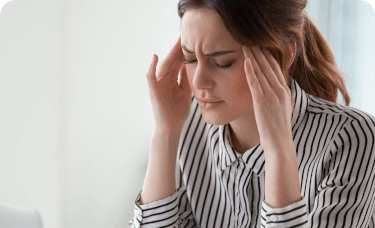Why hitting the gym has a positive effect.
Stress — and how to reduce it — is one of those ubiquitous conversation topics that can be heard almost anywhere, from the doctor’s office to a dinner party. And it’s no wonder, as everyone experiences some level of stress.
Now that we’ve shared a bunch of the bad news, here’s some good: exercise can reduce stress. In fact, numerous studies have described an association between physical activity and general wellbeing and mood.1,2
Exercise can help improve mood.
When mood has been measured immediately before and after physical exertion, the results are overwhelmingly positive. Specifically, exercise training can reduce anxious mood in both those with high anxiety or those with a typical level.3 Although more studies are needed, generally exercise is associated with a mood boost.
Similar to how exercise can enhance mood, it can also contribute to the reduction of anxiety. One literature review combined the results of three large studies and concluded that self-reported levels of exercise correlated with better mental health, including fewer symptoms of anxiety and depression.
How does exercise do this? The reasons are complex, but one theory is that exercise triggers certain events inside your body, leading to higher resilience against stress-related disorders.









